A Versatile and Flavorful Culinary Staple Introduction: Tomato pasta sauce base is a fundamental ingredient that forms the foundation of countless delicious pasta dishes. It is a versatile and flavorful sauce that can be customized to suit different culinary preferences and dietary needs. In this summary, we will explore the key components of a tomato pasta sauce base, its many variations, and some popular recipes. Whether you are a seasoned chef or a passionate home cook, understanding the nuances of this essential sauce will help you elevate the flavor of your pasta creations. Key Components of Tomato Pasta Sauce Base: 1. Tomatoes: Tomatoes are the star of the show when it comes to a tomato pasta sauce base. Fresh, ripe tomatoes provide the best flavor, but canned tomatoes are a convenient and tasty alternative. San Marzano or Roma tomatoes are often preferred due to their rich, sweet taste and low acidity. 2. Aromatics: Onions and garlic are commonly used aromatics that enhance the depth of flavor in a tomato pasta sauce base. When sautéed in oil or butter, they add a delicious sweetness and complexity to the sauce. Some recipes may also call for additional herbs like basil, oregano, thyme, or bay leaves to further enhance the flavor profile. 3. Olive Oil: Olive oil is often the oil of choice for sautéing the aromatics and tomato sauce base. It brings its own distinct flavor and richness to the dish. Extra virgin olive oil is recommended for its superior taste, but regular olive oil can be used as well. 4. Seasonings: Seasonings play a crucial role in balancing the flavors of the tomato pasta sauce base. Common seasonings include salt, black pepper, sugar (to balance the acidity of the tomatoes), and red pepper flakes for a hint of heat. Other spices like paprika, dried basil, or dried oregano can also be added for additional complexity. Variations of Tomato Pasta Sauce Base: 1. Marinara Sauce: Marinara sauce is a classic variation that consists of tomatoes, onions, garlic, olive oil, and basic seasonings. It is a simple yet delicious sauce that can be prepared quickly and pairs well with a variety of pasta shapes. 2. Bolognese Sauce: Bolognese sauce is a meat-based variation that adds ground beef, pork, or veal to the tomato base. Slow-cooked with generous amounts of onions, carrots, celery, and herbs, this sauce has a rich and hearty flavor. It is great for serving with thicker pasta shapes, like fettuccine or pappardelle.
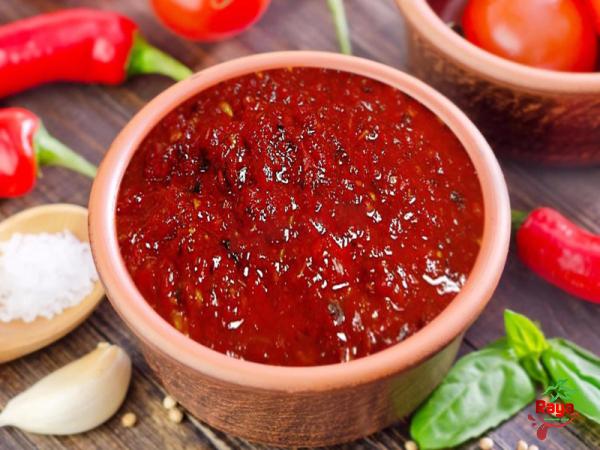
tomato paste
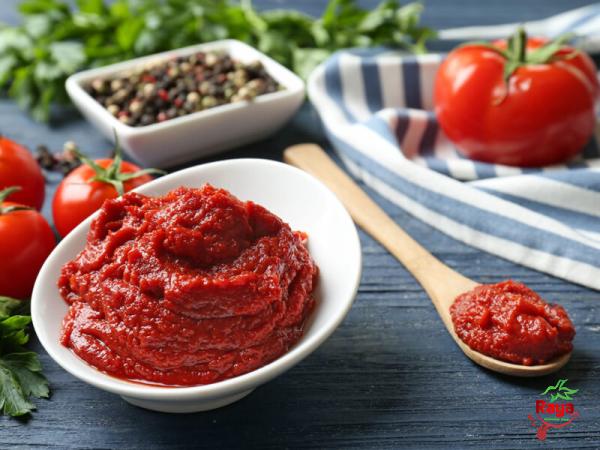 3. Arrabbiata Sauce: Arrabbiata sauce is a spicy variation that incorporates red pepper flakes or fresh chili peppers to the tomato base. The heat level can be adjusted to personal preference, making it a versatile sauce suitable for those who enjoy a spicy kick. It pairs well with penne or rigatoni. 4. Alla Vodka Sauce: Alla vodka sauce is a creamy and indulgent variation that includes heavy cream and vodka in the tomato base. The vodka helps to enhance the tomato flavor while the cream adds richness and smoothness. This sauce is often served with penne or rigatoni. 5. Puttanesca Sauce: Puttanesca sauce is a bold and flavorful variation that features olives, capers, anchovies, and garlic alongside the tomato base. It has a salty and tangy taste with a hint of umami, making it a favorite for those who enjoy a punchy flavor. It pairs well with spaghetti or linguine. Popular Tomato Pasta Sauce Recipes: 1. Classic Marinara Sauce: Sauté diced onions and garlic in olive oil until they turn translucent. Add canned or fresh tomatoes, salt, black pepper, sugar, and dried oregano. Simmer for 20-30 minutes, then blend the sauce to desired consistency. Serve with your favorite pasta. 2. Traditional Bolognese Sauce: Brown ground beef in a large pot with diced onions, carrots, and celery. Add garlic, canned tomatoes, tomato paste, red wine, dried basil, dried oregano, and a bay leaf. Simmer on low heat for several hours, stirring occasionally. Serve over cooked pasta. 3. Spicy Arrabbiata Sauce: Sauté minced garlic and red pepper flakes in olive oil. Add crushed tomatoes, salt, black pepper, and a pinch of sugar. Simmer for 15-20 minutes. Serve with penne or rigatoni, garnished with fresh basil. Conclusion: Tomato pasta sauce base is a versatile and flavorful foundation for countless pasta dishes. With its combination of tomatoes, aromatics, olive oil, and seasonings, it forms the backbone of classic sauces like marinara, bolognese, arrabbiata, alla vodka, and puttanesca. By experimenting with different variations, you can create your own signature tomato pasta sauce that perfectly complements your favorite pasta shapes and ingredients. The ability to master the art of the tomato pasta sauce base will elevate your cooking skills and delight your taste buds. So go ahead and explore the world of tomato pasta sauces, and let your culinary creativity flourish!I. The Business Potential of Tomato Pasta Sauce Base Tomato pasta sauce base holds significant business potential within the food industry. Its versatility, popularity, and wide range of applications make it an essential product for restaurants, food manufacturers, and even home-based businesses. Let’s explore some of the business opportunities associated with tomato pasta sauce base.
3. Arrabbiata Sauce: Arrabbiata sauce is a spicy variation that incorporates red pepper flakes or fresh chili peppers to the tomato base. The heat level can be adjusted to personal preference, making it a versatile sauce suitable for those who enjoy a spicy kick. It pairs well with penne or rigatoni. 4. Alla Vodka Sauce: Alla vodka sauce is a creamy and indulgent variation that includes heavy cream and vodka in the tomato base. The vodka helps to enhance the tomato flavor while the cream adds richness and smoothness. This sauce is often served with penne or rigatoni. 5. Puttanesca Sauce: Puttanesca sauce is a bold and flavorful variation that features olives, capers, anchovies, and garlic alongside the tomato base. It has a salty and tangy taste with a hint of umami, making it a favorite for those who enjoy a punchy flavor. It pairs well with spaghetti or linguine. Popular Tomato Pasta Sauce Recipes: 1. Classic Marinara Sauce: Sauté diced onions and garlic in olive oil until they turn translucent. Add canned or fresh tomatoes, salt, black pepper, sugar, and dried oregano. Simmer for 20-30 minutes, then blend the sauce to desired consistency. Serve with your favorite pasta. 2. Traditional Bolognese Sauce: Brown ground beef in a large pot with diced onions, carrots, and celery. Add garlic, canned tomatoes, tomato paste, red wine, dried basil, dried oregano, and a bay leaf. Simmer on low heat for several hours, stirring occasionally. Serve over cooked pasta. 3. Spicy Arrabbiata Sauce: Sauté minced garlic and red pepper flakes in olive oil. Add crushed tomatoes, salt, black pepper, and a pinch of sugar. Simmer for 15-20 minutes. Serve with penne or rigatoni, garnished with fresh basil. Conclusion: Tomato pasta sauce base is a versatile and flavorful foundation for countless pasta dishes. With its combination of tomatoes, aromatics, olive oil, and seasonings, it forms the backbone of classic sauces like marinara, bolognese, arrabbiata, alla vodka, and puttanesca. By experimenting with different variations, you can create your own signature tomato pasta sauce that perfectly complements your favorite pasta shapes and ingredients. The ability to master the art of the tomato pasta sauce base will elevate your cooking skills and delight your taste buds. So go ahead and explore the world of tomato pasta sauces, and let your culinary creativity flourish!I. The Business Potential of Tomato Pasta Sauce Base Tomato pasta sauce base holds significant business potential within the food industry. Its versatility, popularity, and wide range of applications make it an essential product for restaurants, food manufacturers, and even home-based businesses. Let’s explore some of the business opportunities associated with tomato pasta sauce base.
Specifications of tomato paste
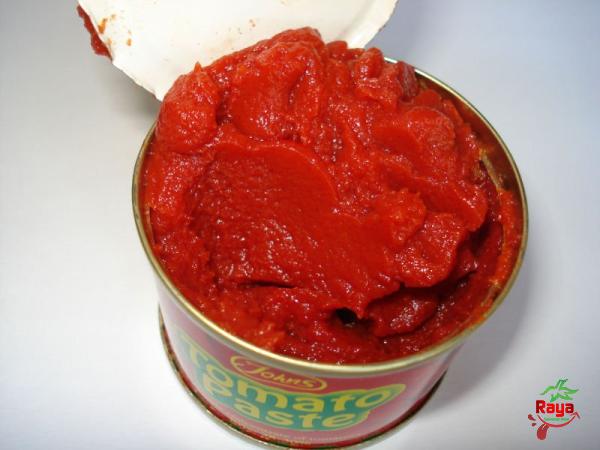 II. Restaurant Sales and Menu Integration Restaurants of all types, from fine dining establishments to casual eateries, rely heavily on tomato pasta sauce base to create delicious pasta dishes. The ability to offer a variety of tomato-based sauces on the menu not only attracts pasta lovers but also provides versatility to cater to different dietary preferences. Restaurants can leverage the use of high-quality tomato pasta sauce base as a signature ingredient to differentiate themselves and offer unique flavor profiles to their customers. III. Food Manufacturing and Distribution Food manufacturers often produce tomato pasta sauce base on a large scale, packaging it for retail sale or as an ingredient for other food products. By producing and distributing tomato pasta sauce base, companies can tap into the growing demand for convenient and ready-to-use products in the culinary market. This opens up opportunities for bulk sales to restaurants, supermarkets, and other foodservice providers. IV. Private Label and Co-Packing Private label and co-packing opportunities present lucrative options for businesses looking to enter the tomato pasta sauce base market. Various retailers or grocery chains may be interested in developing their own brand of tomato pasta sauce base to be sold under their label. Similarly, food manufacturers that have the production capacity can offer co-packing services to small-scale businesses looking to launch their own branded tomato pasta sauce base. V. Online Retail and Home Delivery The rise of e-commerce has opened up avenues for entrepreneurs to sell tomato pasta sauce base directly to consumers online. By establishing an online retail platform, businesses can showcase their products to a wider audience and tap into the growing demand for specialty food items. Offering home delivery service can further enhance customer convenience and attract a loyal customer base. VI. Specialty and Gourmet Market Tomato pasta sauce base is not limited to traditional varieties. Businesses can focus on producing specialty or gourmet versions, catering to consumers seeking unique flavor profiles and high-quality ingredients. By using premium tomatoes, organic produce, and carefully curated herbs and spices, businesses can carve out a niche in the specialty market and command higher prices.
II. Restaurant Sales and Menu Integration Restaurants of all types, from fine dining establishments to casual eateries, rely heavily on tomato pasta sauce base to create delicious pasta dishes. The ability to offer a variety of tomato-based sauces on the menu not only attracts pasta lovers but also provides versatility to cater to different dietary preferences. Restaurants can leverage the use of high-quality tomato pasta sauce base as a signature ingredient to differentiate themselves and offer unique flavor profiles to their customers. III. Food Manufacturing and Distribution Food manufacturers often produce tomato pasta sauce base on a large scale, packaging it for retail sale or as an ingredient for other food products. By producing and distributing tomato pasta sauce base, companies can tap into the growing demand for convenient and ready-to-use products in the culinary market. This opens up opportunities for bulk sales to restaurants, supermarkets, and other foodservice providers. IV. Private Label and Co-Packing Private label and co-packing opportunities present lucrative options for businesses looking to enter the tomato pasta sauce base market. Various retailers or grocery chains may be interested in developing their own brand of tomato pasta sauce base to be sold under their label. Similarly, food manufacturers that have the production capacity can offer co-packing services to small-scale businesses looking to launch their own branded tomato pasta sauce base. V. Online Retail and Home Delivery The rise of e-commerce has opened up avenues for entrepreneurs to sell tomato pasta sauce base directly to consumers online. By establishing an online retail platform, businesses can showcase their products to a wider audience and tap into the growing demand for specialty food items. Offering home delivery service can further enhance customer convenience and attract a loyal customer base. VI. Specialty and Gourmet Market Tomato pasta sauce base is not limited to traditional varieties. Businesses can focus on producing specialty or gourmet versions, catering to consumers seeking unique flavor profiles and high-quality ingredients. By using premium tomatoes, organic produce, and carefully curated herbs and spices, businesses can carve out a niche in the specialty market and command higher prices.
buy tomato paste
 VII. Customization and Personalization The growing trend of customization and personalization in the food industry presents opportunities to offer tomato pasta sauce base tailored to individual preferences. This can be achieved by allowing customers to choose their preferred ingredients, spice levels, or even creating customized flavors based on specific dietary requirements such as vegan or gluten-free options. Businesses that offer personalized tomato pasta sauce base can attract a dedicated customer base and foster loyalty. VIII. Foodservice Distribution Wholesale distributors play a vital role in the supply chain, connecting manufacturers with restaurants, hotels, and other foodservice establishments. Companies that specialize in foodservice distribution can take advantage of the demand for tomato pasta sauce base by sourcing high-quality products and delivering them efficiently to their customers. Building strong relationships with both suppliers and clients is crucial for success in the foodservice distribution sector. IX. Culinary Education and Consulting Entrepreneurs with extensive knowledge and expertise in tomato pasta sauce base can offer culinary education and consulting services. This can involve hosting cooking classes, workshops, or providing consulting services to restaurants or food manufacturers looking to improve their tomato-based sauce recipes, production processes or menu development. X. Cross-Promotion and Collaborations Collaborations with other food businesses offer an excellent platform for cross-promotion and expanding customer reach. For example, a tomato pasta sauce base manufacturer could collaborate with a pasta company to create recipe packages or joint marketing campaigns that highlight the synergies between both products. Such partnerships can increase brand visibility and lead to mutually beneficial growth. XI. Branding and Packaging In today’s competitive business landscape, strong branding and appealing packaging are essential to capture consumer attention. A well-designed logo, attractive labels, and informative packaging can position tomato pasta sauce base as a premium product and differentiate it from competitors. Investing in professional branding and packaging can greatly enhance the perceived value of the product and drive sales. XII. Research and Development Continual research and development are key to staying ahead in the tomato pasta sauce base market. Businesses can invest resources in developing innovative products by experimenting with new flavor combinations, exploring sustainable packaging options, or meeting the demands of emerging dietary trends. By staying at the forefront of industry trends and consumer preferences, businesses can ensure that their tomato pasta sauce base remains relevant and appealing to the market. Conclusion: Tomato pasta sauce base offers a myriad of business opportunities within the food industry. From restaurant sales to food manufacturing, private labeling to specialty markets, the options for entrepreneurs to capitalize on this versatile and flavorful sauce are vast. By understanding consumer preferences, customizing products, and leveraging marketing strategies, businesses can establish a strong presence in the market and cater to the ever-growing demand for high-quality tomato pasta sauce base. Whether through traditional channels or emerging online platforms, the potential for success in this market is significant for those willing to explore and innovate.
VII. Customization and Personalization The growing trend of customization and personalization in the food industry presents opportunities to offer tomato pasta sauce base tailored to individual preferences. This can be achieved by allowing customers to choose their preferred ingredients, spice levels, or even creating customized flavors based on specific dietary requirements such as vegan or gluten-free options. Businesses that offer personalized tomato pasta sauce base can attract a dedicated customer base and foster loyalty. VIII. Foodservice Distribution Wholesale distributors play a vital role in the supply chain, connecting manufacturers with restaurants, hotels, and other foodservice establishments. Companies that specialize in foodservice distribution can take advantage of the demand for tomato pasta sauce base by sourcing high-quality products and delivering them efficiently to their customers. Building strong relationships with both suppliers and clients is crucial for success in the foodservice distribution sector. IX. Culinary Education and Consulting Entrepreneurs with extensive knowledge and expertise in tomato pasta sauce base can offer culinary education and consulting services. This can involve hosting cooking classes, workshops, or providing consulting services to restaurants or food manufacturers looking to improve their tomato-based sauce recipes, production processes or menu development. X. Cross-Promotion and Collaborations Collaborations with other food businesses offer an excellent platform for cross-promotion and expanding customer reach. For example, a tomato pasta sauce base manufacturer could collaborate with a pasta company to create recipe packages or joint marketing campaigns that highlight the synergies between both products. Such partnerships can increase brand visibility and lead to mutually beneficial growth. XI. Branding and Packaging In today’s competitive business landscape, strong branding and appealing packaging are essential to capture consumer attention. A well-designed logo, attractive labels, and informative packaging can position tomato pasta sauce base as a premium product and differentiate it from competitors. Investing in professional branding and packaging can greatly enhance the perceived value of the product and drive sales. XII. Research and Development Continual research and development are key to staying ahead in the tomato pasta sauce base market. Businesses can invest resources in developing innovative products by experimenting with new flavor combinations, exploring sustainable packaging options, or meeting the demands of emerging dietary trends. By staying at the forefront of industry trends and consumer preferences, businesses can ensure that their tomato pasta sauce base remains relevant and appealing to the market. Conclusion: Tomato pasta sauce base offers a myriad of business opportunities within the food industry. From restaurant sales to food manufacturing, private labeling to specialty markets, the options for entrepreneurs to capitalize on this versatile and flavorful sauce are vast. By understanding consumer preferences, customizing products, and leveraging marketing strategies, businesses can establish a strong presence in the market and cater to the ever-growing demand for high-quality tomato pasta sauce base. Whether through traditional channels or emerging online platforms, the potential for success in this market is significant for those willing to explore and innovate.

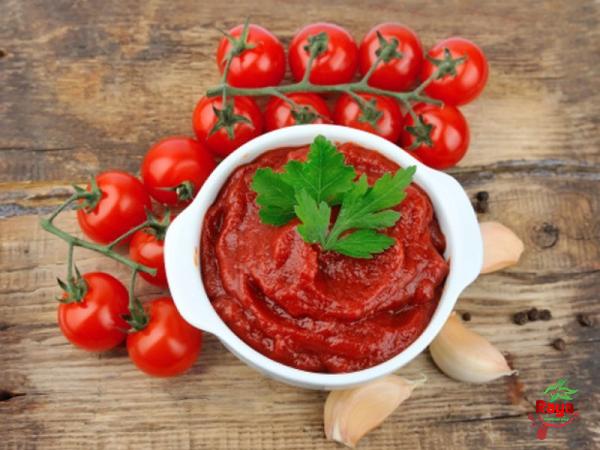
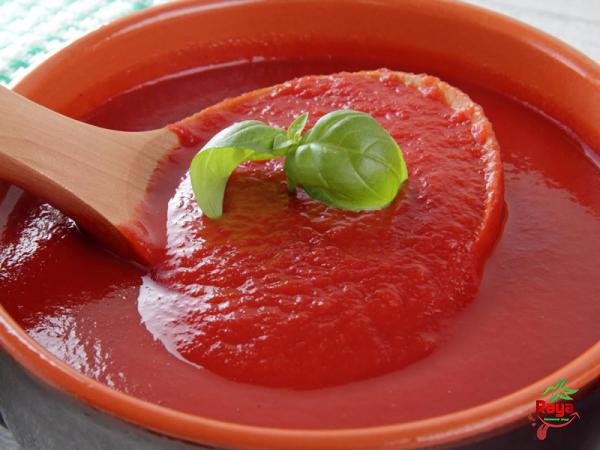


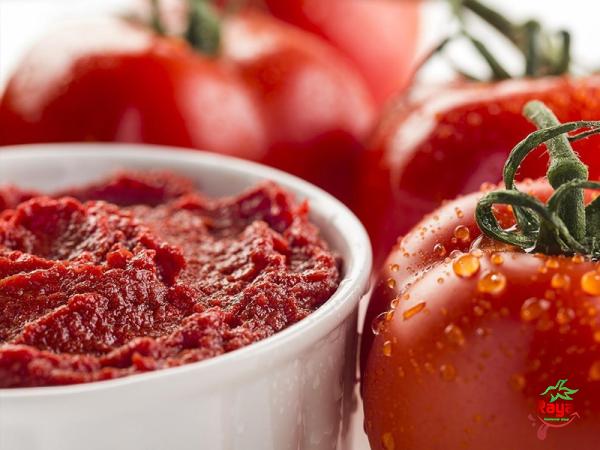



Your comment submitted.